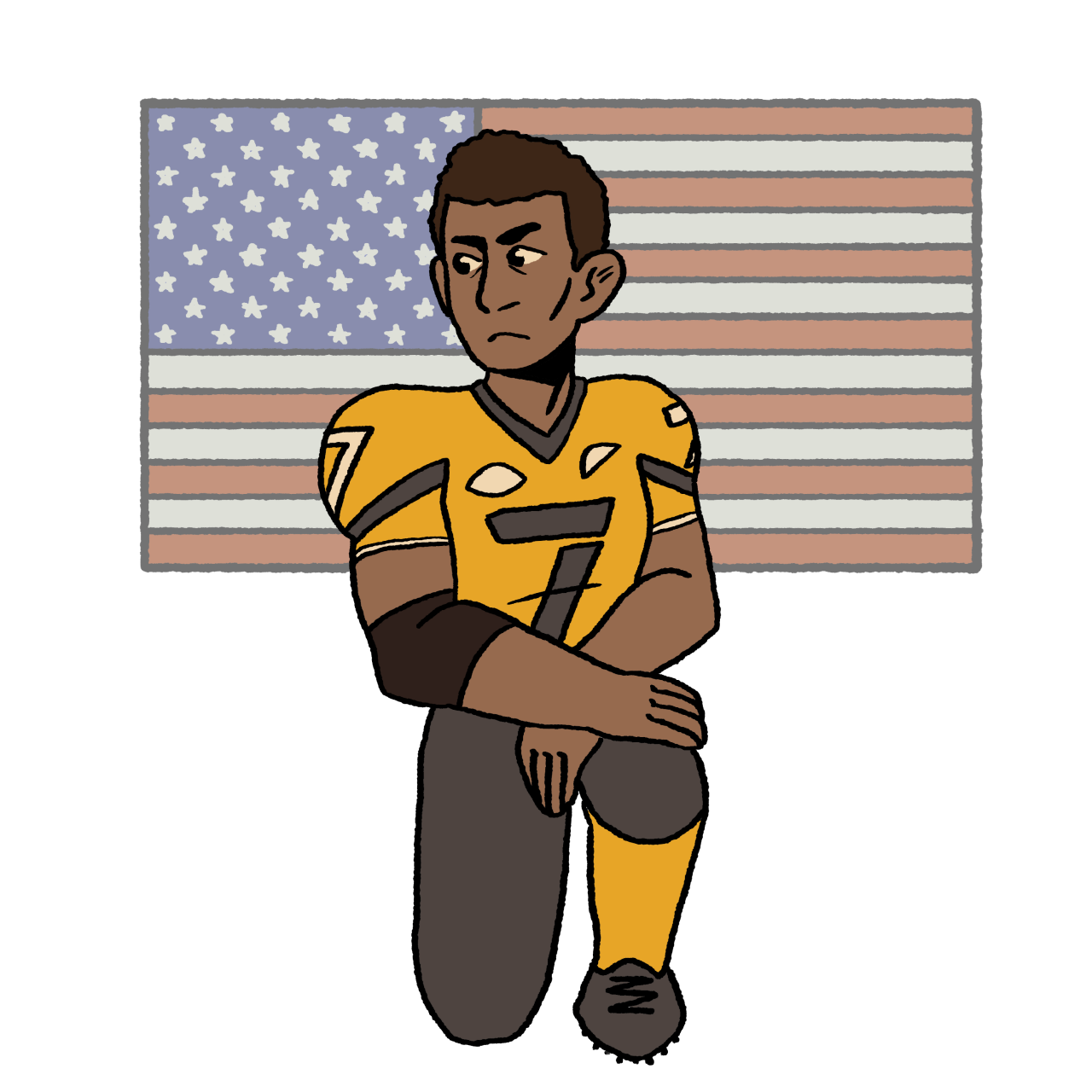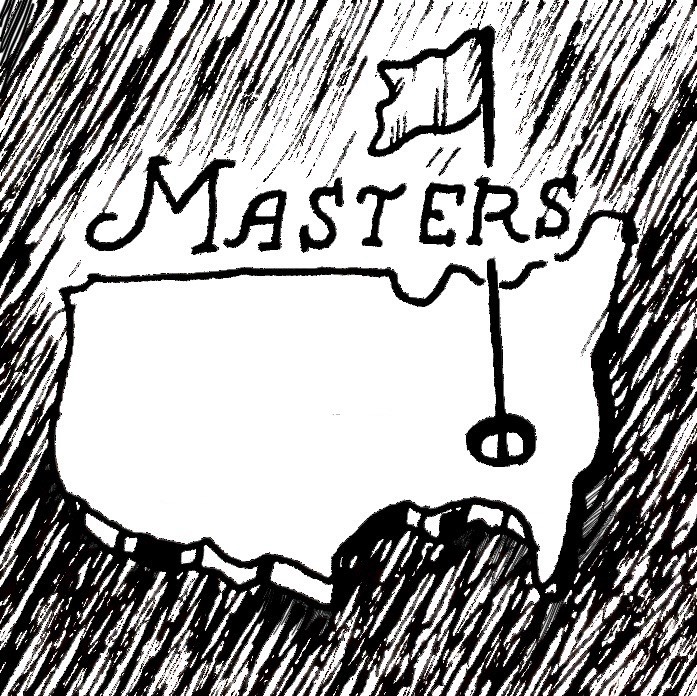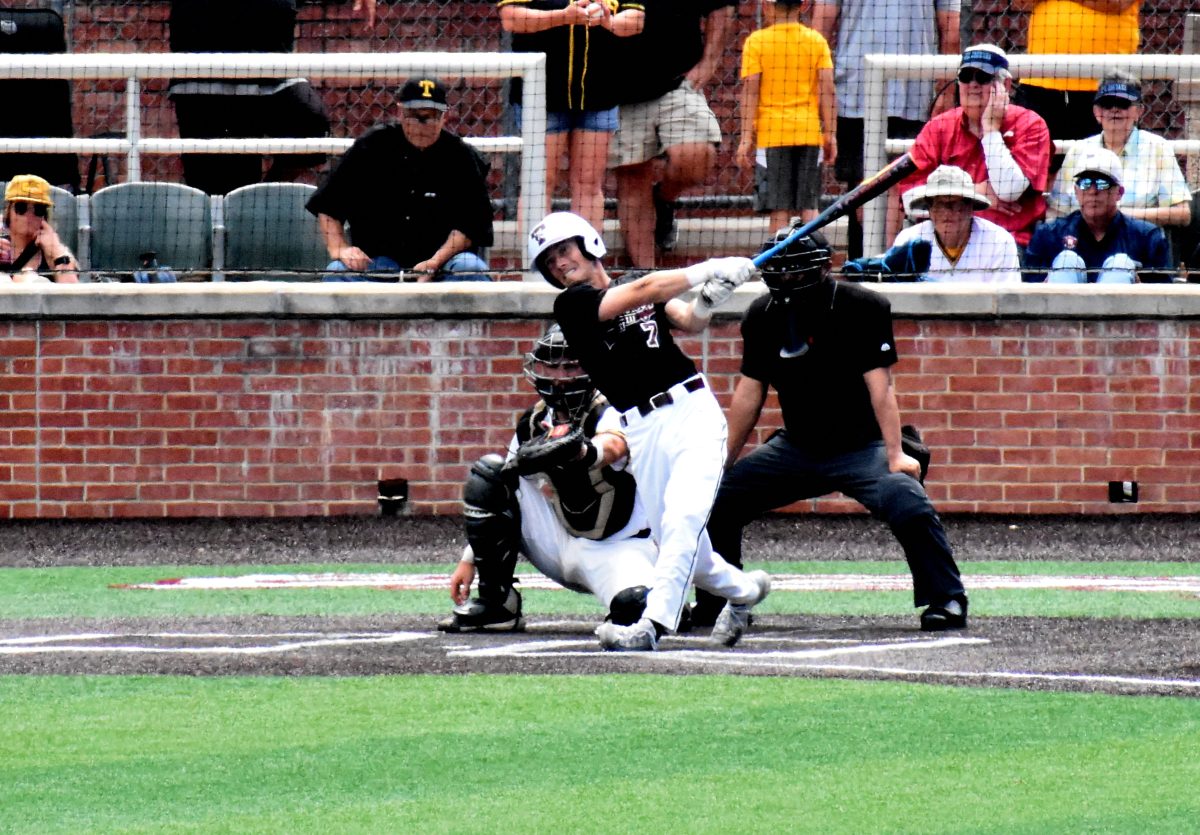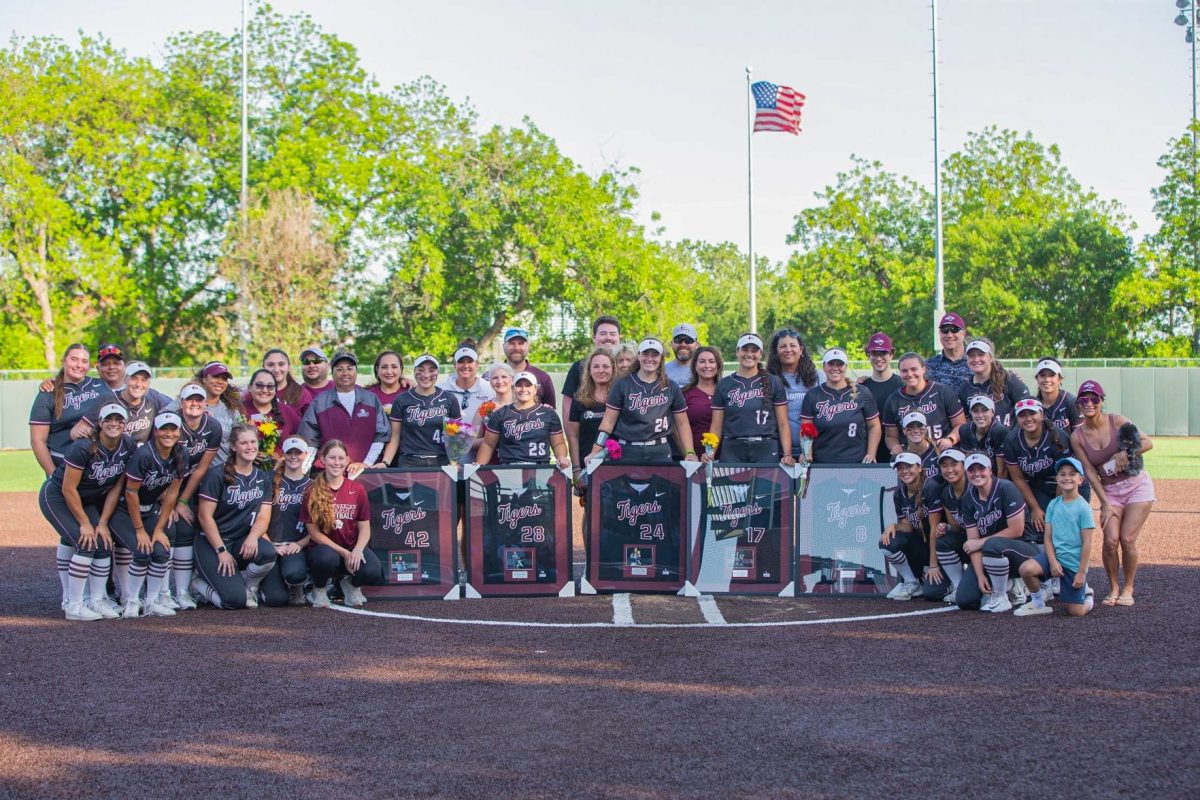illustration by Ren Rader
This year, there has been a rise in protests in sports after the recent shootings of Black Americans. Whether politics and protests belong in sports has long been a touchy subject, with some admiring athletes who speak out, while others wish athletes would just stick to what they’re paid to do.
College students are some of the most-reached people when professional athletes speak out, so student-athletes at Trinity shared their reactions to the protests happening in professional sports.
Trey Lisauckis, a first-year on the football team, believes athletes encouraging others to vote could be beneficial for the country. However, Lisauckis wants athletes to avoid shaming other people.
“I think everyone should be able to express their own views in whichever way they feel necessary, in compliance with the law of course. However, I don’t think they should demonize others in making their statements. Advocating for the citizens to vote is great, and I’m sure we will see an influx in votes because of the mass propaganda,” said Lisauckis. “Ultimately, I don’t think anyone has the right to tell the athletes to stop speaking their mind (i.e. the ‘shut up and play’ movement). But, in accordance with my previous point, they should not be trying to alienate and discriminate against a group.”
Seve Rodriguez, a senior on the track team, emphasized the influence that professional athletes can play in terms of spreading messages of fighting social injustices.
“I think that it is incredibly important that professional athletes use their platforms to speak out against social injustice and encourage participation in our democracy. Athletes have an incredible ‘under the radar’ position of power in our society, and I think that it is great that they can spread messages without the political slant and jargon that comes from news anchors,” said Rodriguez. “They are playing the game they love and promoting democracy at the same time, without shouting at you in the face like some news cycles have turned into.”
According to Harris Good, a junior on the football team, there is great importance in athletes bringing attention to issues in order to create change.
“I think it’s essential that athletes are using their platform to bring attention to the issues that need a change, and you can see, by how the fans are reacting, that change is really needed,” said Good.
Delaney Kelley, a senior on the golf team, shared a similar sentiment to Good.
“I think that professional athletes know their influence on society and that people will listen to what they have to say. I think that athletes speaking up about things as important as voting and social justice is important because it brings a perspective that can inspire a completely different group of people to participate in these issues,” said Kelley.
According to Mary Doyle, a junior on the swimming & diving team, professional athletes can especially influence young athletes who look up to them as role models.
“I just think it’s easy for them to advocate because they have a social platform from being professional athletes. And along with that they have a lot of people, especially young people, that really look up to them,” said Doyle.
While many student-athletes at Trinity see athletes playing a big role in more than just their sports, not everyone agrees that they should be speaking out on politics. Andre Gebhardt, a first-year on the football team, believes football players should just play football.
“I think protesting has no place in sports. I watch football to see men battle each other, not protest for BLM,” said Gebhardt.
If everyone agreed in the country, there would not be the need for protests. There are certainly a lot of people who watch sports as an escape, and they don’t want the difficult realities of politics to seep into their favorite games.
Lexie Acevedo, a junior on the volleyball team, combats the idea that athletes should not talk about social issues by explaining that athletes are humans before they are athletes.
“I think professional athletes in the NBA, NFL, WNBA, and NHL [and other sports] are regular humans before they are professional athletes and viewers sometimes lose sight of that,” said Acevedo. “Discussing social justice issues is the freedom of speech in action, they just have a larger platform to utilize than most, and I am happy they are using it. Whether they are directly impacted currently or not, they understand the repercussions of social injustices beyond themselves and I think that’s admirable.”






